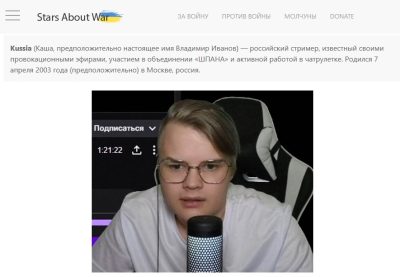It’s a highly visually convincing video. Viewed on a smartphone, it’s easy to miss the subtle clues revealing its artificial nature — details that might catch a trained eye but are lost on the millions who’ve seen it around the world.

The video shows a young man “crying” and pleading in Russian: “They’ve mobilised me… Help me, I don’t want to die. I’m only 23 years old. Help me.”
https://x.com/CforCD/status/1985614338644676975
With subtitles in multiple languages, the clip spread rapidly online, amassing millions of views worldwide.
However, this is a deepfake, created using artificial intelligence. What gives it away? Subtle details. Specifically, a screw.
“One of the screws on the soldier’s helmet changes shape within seconds, becoming concave instead of convex — a typical example of how AI models struggle with seemingly insignificant details. In most cases, it’s precisely these inconsistencies that reveal the true nature of such videos,” explains Matic Tomšič in his article “Objokani vojaki obupano kličejo na pomoč: nekaj je hudo narobe #video” published on the Slovenian portal Siol.net.
According to SSBCrack News in its article “Crying Ukraine soldier video appears to be AI fake” “The clip actually combines two short fragments — one four seconds long, the other ten — joined together. Experts point out that such short duration of recordings is typical of AI-generated videos, as most AI models can only produce continuous footage of up to around ten seconds.”
The “screw transformation” occurs roughly 11 seconds into the video.
A closer look also reveals that the helmet seems to “float” above the soldier’s head — and, finally, the Ukrainian army does not use that model of helmet. You can, however, buy a similar one on Amazon.
The deepfake was circulated by accounts promoting anti-Ukrainian narratives. One post featuring the video reached nearly two million views on X (formerly Twitter). The TikTok account that originally uploaded it has since been removed by the administrator.
The (Russian?) creators of the video also overlooked one more telling detail: in Ukraine, mandatory mobilisation applies only to citizens aged 25 and older.
Is this question mark necessary? According to David Puente of the Italian fact-checking portal, it’s not — because the boy in the picture is not a Ukrainian soldier, but a Russian from Russia, as we can read in the text:
Questi non sono giovani soldati ucraini mandati a morire al fronte: sono streamer russi
(These are not young Ukrainian soldiers sent to die at the front; they are Russian streamers.)

The video portraying a “23-year-old desperate Ukrainian soldier who doesn’t want to die” was generated by artificial intelligence using the face of a Russian streamer, concludes David Puente.
By ih.
What Is a Deepfake?
A deepfake is media content generated using artificial intelligence to imitate real people — in appearance, voice, or both. It can be a manipulated video that makes someone appear to say things they never said, or an entirely synthetic audio clip mimicking a real person’s voice.

COMMENTS